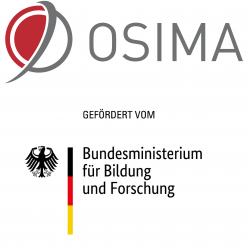Citizens often assume that the protection of society against terrorism, criminal activity, or natural disasters is a governmental obligation, which should be financed and ensured by public authorities alone. For years, though, there is a trend of private institutions assuming protection and control tasks. In Germany, the state’s inflation-adjusted expenditures regarding the provision of security have stagnated over longer periods of time, while the private security – or more accurate, protection – industry has been growing faster than the national economy.
The political will to enhance the efficiency of the use of tax money, and the necessity to relieve governmental agencies by concentrating on core tasks and assigning other tasks to service providers simultaneously, contributes to this trend. Enterprises have to protect value chains, complementing the governmental measures to protect the economy and society. Since value chains are transnational in an open economy, their protection has an international dimension. Enterprises do not only employ private protection service providers, but also develop, for instance, internal concepts to protect the integrity and the resilience of their organizations against economic crime. This leads to extensive “Compliance Management Systems” (CMS), which contain characteristics of the widely understood “Privatization of Security”. Thus internal investigations are performed, replacing prosecutorial inquiries. The danger of evading constitutional, procedural rules is not excluded.
The joint project “Organization and Regulation of the Civil Security Market” („Die Ordnung des Sicherheitsmarktes“ – (OSiMA)) analyzes which forms of protection service provision exist and how they should be organized and financed. It is important to explore what the private protection industry can contribute from a regulatory point of view. The goal is to describe the framework in which the protection industry can develop new services and organizational forms of protections and security. At the same time, the project will enable a systematic delimitation from those protection service provisions and areas of responsibility that should stay controlled by the government due to legal, administrative, technical, economic, and business considerations.
The project examines in intertwining and complementary work packages basic parameters and the development of supply and demand of protection services, the institutional design of cooperative relations (for example public-private partnerships) and the regulative and practical approaches in other countries by comparing case studies.
The development of a multidimensional criteria model, categorization system, and interdisciplinary review scheme will offer development assistance to leaders in politics, regulating authorities, and enterprises. This assistance will be useful whenever questions concerning existing or evolving protection service activities arise: whether, how, and to what extent non-governmental parties may, can and should be involved. An information platform, developed by OSiMa, will be able to provide systematic development assistance and more information. There will also be information made available about “lessons learned”, criteria, standards, and business models already.
The individual work packages of the joint project will be described in detail in the following submenu.
The project is funded under the BMBF’s “New Economic Aspects” announcement as part of the Federal Government’s “Research for Civil Security” programme.


